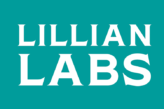As a qualitative research consultant, I’ve spent hundreds of hours in your shoes “behind the glass” observing focus groups and interviews. I can’t say that every one of those observations resulted in an apparent “aha” moment or epiphany. But what I can say is that, through the years, I’ve learned that listening plays a key role in deciphering those observations and uncovering the critical insights that we’re looking for.
There’s a process to being a better listener. It takes work and preparation. So, I want to share with you some things that’ve made me a better listener and can help you too:

LISTENING PLAYS A KEY ROLE IN DECIPHERING THOSE OBSERVATIONS AND UNCOVERING THE CRITICAL INSIGHTS WE'RE LOOKING FOR.
Be Prepared
- Be in a distraction-free environment – turn off email and text notifications and make sure you’re in a place where family and pets won’t disturb you.
- Do the advance work by immersing yourself in the topic. Shop the category or talk to friends and family about their category experiences.
- Fuel yourself with adequate sleep and nutrition. It’s hard to focus when you are nodding off or hungry/eating.
Step into their Shoes
- Put all judgment aside – try to put yourself in your consumer’s shoes as much as possible.
- Try to understand a viewpoint that is the most surprising or different than yours. Don’t dismiss these people’s opinions – that’s where the greatest learning comes from
- Listen with your ears and your eyes! You can learn even more through what you observe
Make Your Notes Count
- Take notes with a note-taking template created from the discussion guide. This will help you stay on track and ensure you capture what’s important.
- In your notes, translate what you hear and observe into conclusions and implications for your project. Something like this:
![]()
- Develop a shorthand to make note-taking more efficient so you can watch and listen more. I use a “+” for positive comments, a “-” for negative comments, and “W4” for items they want (wish for).
Capture the Moments
- Hold yourself and other observers accountable with a mandatory debrief session. Ensure everyone participates by having them complete a “my key take-aways” template.
- Be diligent about debriefing after each day and at the end of the project. Top-of-mind findings may get lost if not captured right away.
- At the end of each IDI or group, debrief on your own by highlighting the 3-5 most interesting take-aways
The biggest takeaway in all of this is that we should never take listening for granted. You gotta put the work in. But, in the end, it’s well worth it in order to get the most out of your research.


